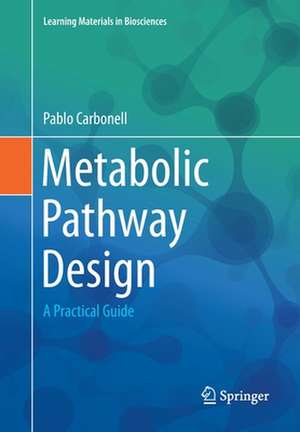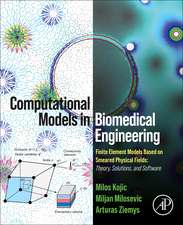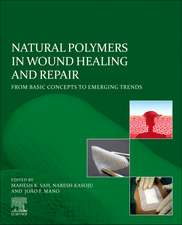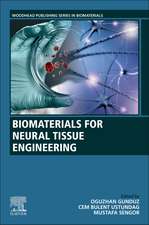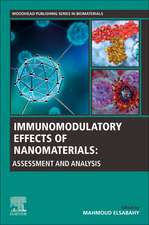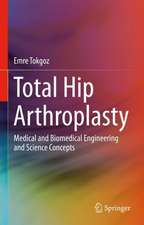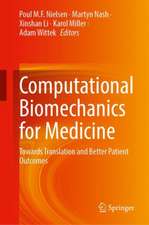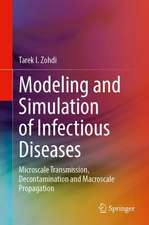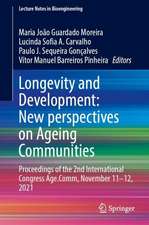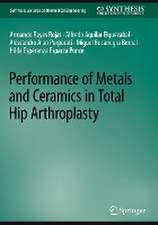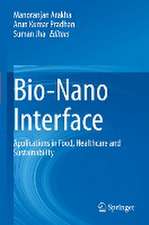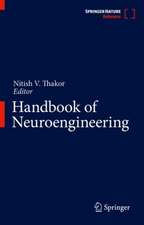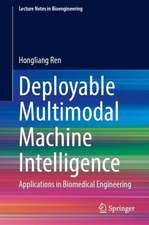Metabolic Pathway Design: A Practical Guide: Learning Materials in Biosciences
Autor Pablo Carbonellen Limba Engleză Paperback – 14 noi 2019
Din seria Learning Materials in Biosciences
- 17%
 Preț: 394.87 lei
Preț: 394.87 lei - 20%
 Preț: 506.67 lei
Preț: 506.67 lei - 5%
 Preț: 529.76 lei
Preț: 529.76 lei - 5%
 Preț: 338.37 lei
Preț: 338.37 lei - 5%
 Preț: 330.24 lei
Preț: 330.24 lei -
 Preț: 347.48 lei
Preț: 347.48 lei - 5%
 Preț: 561.90 lei
Preț: 561.90 lei - 17%
 Preț: 426.67 lei
Preț: 426.67 lei - 17%
 Preț: 457.75 lei
Preț: 457.75 lei - 5%
 Preț: 491.25 lei
Preț: 491.25 lei - 17%
 Preț: 457.84 lei
Preț: 457.84 lei - 17%
 Preț: 490.60 lei
Preț: 490.60 lei -
 Preț: 358.42 lei
Preț: 358.42 lei - 17%
 Preț: 424.90 lei
Preț: 424.90 lei - 5%
 Preț: 414.82 lei
Preț: 414.82 lei - 17%
 Preț: 458.25 lei
Preț: 458.25 lei - 13%
 Preț: 383.66 lei
Preț: 383.66 lei - 5%
 Preț: 797.65 lei
Preț: 797.65 lei - 20%
 Preț: 345.73 lei
Preț: 345.73 lei - 5%
 Preț: 797.65 lei
Preț: 797.65 lei - 17%
 Preț: 428.12 lei
Preț: 428.12 lei - 5%
 Preț: 671.48 lei
Preț: 671.48 lei - 19%
 Preț: 397.76 lei
Preț: 397.76 lei -
 Preț: 339.79 lei
Preț: 339.79 lei - 15%
 Preț: 527.97 lei
Preț: 527.97 lei - 19%
 Preț: 477.45 lei
Preț: 477.45 lei - 5%
 Preț: 583.95 lei
Preț: 583.95 lei - 19%
 Preț: 436.50 lei
Preț: 436.50 lei - 5%
 Preț: 527.89 lei
Preț: 527.89 lei - 15%
 Preț: 466.45 lei
Preț: 466.45 lei - 15%
 Preț: 494.85 lei
Preț: 494.85 lei - 5%
 Preț: 524.95 lei
Preț: 524.95 lei - 15%
 Preț: 533.72 lei
Preț: 533.72 lei - 15%
 Preț: 528.99 lei
Preț: 528.99 lei -
 Preț: 353.65 lei
Preț: 353.65 lei - 5%
 Preț: 595.01 lei
Preț: 595.01 lei - 15%
 Preț: 476.75 lei
Preț: 476.75 lei - 15%
 Preț: 527.48 lei
Preț: 527.48 lei
Preț: 494.85 lei
Preț vechi: 582.18 lei
-15% Nou
Puncte Express: 742
Preț estimativ în valută:
94.69€ • 99.13$ • 78.35£
94.69€ • 99.13$ • 78.35£
Carte tipărită la comandă
Livrare economică 05-19 aprilie
Preluare comenzi: 021 569.72.76
Specificații
ISBN-13: 9783030298647
ISBN-10: 3030298647
Pagini: 168
Ilustrații: X, 168 p. 44 illus. in color.
Dimensiuni: 168 x 240 mm
Greutate: 0.3 kg
Ediția:1st ed. 2019
Editura: Springer International Publishing
Colecția Springer
Seria Learning Materials in Biosciences
Locul publicării:Cham, Switzerland
ISBN-10: 3030298647
Pagini: 168
Ilustrații: X, 168 p. 44 illus. in color.
Dimensiuni: 168 x 240 mm
Greutate: 0.3 kg
Ediția:1st ed. 2019
Editura: Springer International Publishing
Colecția Springer
Seria Learning Materials in Biosciences
Locul publicării:Cham, Switzerland
Cuprins
Part I. Metabolic Pathway Modeling.- Getting on the Path to Engineering Biology.- Genome-Scale Modeling.- Pathway Modeling.- Modeling Chemical Diversity.- Part II. Metabolic Pathway Discovery.- Enzyme Discovery and Selection.- Pathway Discovery.- Pathway Selection.- Part III. Metabolic Pathway Design.- Pathway Design.- Pathway Redesign.
Notă biografică
Pablo Carbonell is a senior staff scientist at the SynBioChem Centre, Manchester Institute of Biotechnology. His field of research is automated design for metabolic engineering and synthetic biology. Pablo has developed several bioretrosynthesis-based pathway design tools, including RetroPath, XTMS, EcoliTox, Selenzyme for enzyme selection and Promis for protein design. He is interested in applying the principles of machine learning and control engineering to sustainable biological design. He has contributed to the development of several theoretical models for bio-based, bionics systems – from biosensors to robotic exoskeletons.
Textul de pe ultima copertă
This textbook presents solid tools for in silico engineering biology, offering students a step-by-step guide to mastering the smart design of metabolic pathways. The first part explains the Design-Build-Test-Learn-cycle engineering approach to biology, discussing the basic tools to model biological and chemistry-based systems. Using these basic tools, the second part focuses on various computational protocols for metabolic pathway design, from enzyme selection to pathway discovery and enumeration. In the context of industrial biotechnology, the final part helps readers understand the challenges of scaling up and optimisation. By working with the free programming language Scientific Python, this book provides easily accessible tools for studying and learning the principles of modern in silico metabolic pathway design. Intended for advanced undergraduates and master’s students in biotechnology, biomedical engineering, bioinformatics and systems biology students, the introductory sections make it also useful for beginners wanting to learn the basics of scientific coding and find real-world, hands-on examples.
Caracteristici
Offers real-world, hands-on examples of scientific coding Written for biologists and engineers alike Focuses on the Design-Build-Test-Learn cycle applied to metabolic engineering Includes lab protocols to explain the integration of modelling approaches Provides insights into automating full processes Introduces machine learning as part of pathway design
